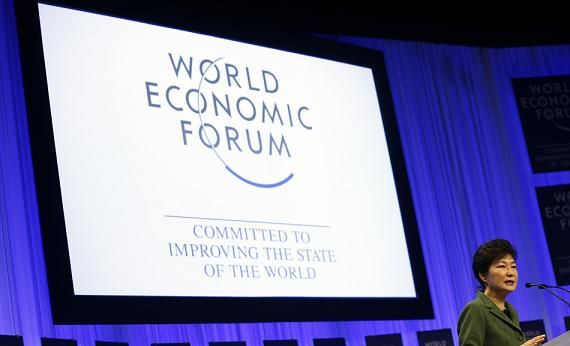Davos 2014: Swiss Bank UBS Praises Tech But Questions Leverage Ratios

As world leaders met at Davos this week, leading Swiss bank UBS AG (VTX:UBSN) published a white paper on Wednesday outlining how technology has disrupted business and finance, and warning that bank leverage ratios must not be too tightly regulated.
Better tech services, like online brokerages and dark pool exchanges, may erase the need for banking intermediaries, the paper argues. Technology poses “profound questions for intermediary industries,” including finance itself, according to the paper.
That poses an interesting question for UBS, whose strengths include wealth management, asset management and investment banking, on a global scale.
UBS also makes the case that trade is growing in line with global economic growth, no longer tending to double that growth, as happened before the 2008 global financial crisis.
Mobile technology, 3D printing and shale extraction techniques are all providing economic benefits, notes the paper. Robots now can cost as little as $4 an hour, which could boost productivity, just as 3D printing cuts waste. Earlier UBS research from September 2013 concluded that 3D printing won’t have a serious impact on manufacturing in coming years, however.
In a separate note released Tuesday, the bank also provided an outlook for the Swiss economy. UBS upped its growth forecast for Switzerland to 2.1 percent GDP growth in 2014 and 2.4 percent in 2015, thanks to strength from Swiss consumers.
UBS chairman Axel Weber added in a World Economic Forum panel discussion that Europe’s likely growth drivers are tech, innovation and trade, once monetary stimulus has been withdrawn.
© Copyright IBTimes 2025. All rights reserved.






















